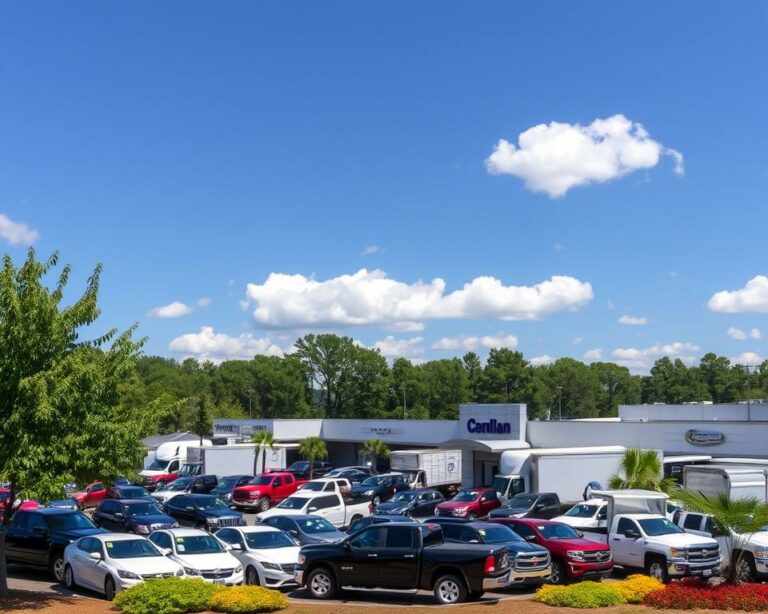Heavy Duty Diesel Trucks For Sale: Your Comprehensive Guide to Powering Your Business

Heavy Duty Diesel Trucks For Sale: Your Comprehensive Guide to Powering Your Business
In the vast landscape of commercial transportation, heavy-duty diesel trucks stand as the undisputed workhorses, the backbone of industries ranging from logistics and construction to agriculture and specialized services. More than just vehicles, they are essential investments, representing power, durability, and the capability to move mountains—or at least, very heavy loads—across vast distances. If you’re looking to acquire one of these formidable machines, navigating the market for heavy-duty diesel trucks for sale requires a clear understanding of their types, benefits, and the critical considerations that ensure a wise investment. This guide aims to provide a comprehensive roadmap for anyone seeking to purchase a heavy-duty diesel truck, whether new or used.
Understanding Heavy-Duty Diesel Trucks: Classes and Applications
At their core, heavy-duty diesel trucks are engineered for sustained, demanding performance. In the United States, they are primarily categorized by their Gross Vehicle Weight Rating (GVWR), which is the maximum operating weight or mass of a vehicle as specified by the manufacturer, including the vehicle’s chassis, body, engine, fluids, fuel, accessories, driver, passengers, and cargo.
- Class 7 Trucks: These trucks have a GVWR ranging from 26,001 to 33,000 pounds. They are often seen as large single-unit trucks, frequently used for medium-range hauling, refuse collection, large box trucks, and some vocational applications like heavy-duty towing or municipal services.
- Class 8 Trucks: The heaviest of the heavy, Class 8 trucks boast a GVWR of 33,001 pounds or more. This category encompasses the iconic semi-trailer tractors (tractor-trailers), dump trucks, concrete mixers, fire trucks, and other vocational trucks designed for the most strenuous tasks. These are the giants of the road, built for long-haul freight, heavy construction, and extreme hauling.
Common Applications:
- Long-Haul/Over-the-Road (OTR): The most recognizable application, involving tractor-trailers moving goods across states and continents.
- Construction: Dump trucks, concrete mixers, flatbeds, and lowboys for transporting equipment and materials to job sites.
- Vocational: Refuse trucks, tow trucks, utility trucks, fire engines, and specialized vehicles for specific industries.
- Agriculture: Hauling livestock, grain, and farm equipment.
- Oil & Gas: Transporting heavy machinery, drilling equipment, and hazardous materials.
These trucks are defined by their robust diesel engines, designed for high torque output, fuel efficiency (relative to their size and load), and exceptional longevity. Paired with heavy-duty transmissions, durable chassis, and sophisticated braking systems, they are built to endure millions of miles and countless hours of operation.
Benefits of Investing in a Heavy-Duty Diesel Truck
The decision to purchase a heavy-duty diesel truck is often driven by a need for reliability and capability. Here are some key benefits:
- Durability and Longevity: Engineered with robust components, diesel engines are renowned for their ability to withstand extreme conditions and high mileage, often lasting significantly longer than gasoline engines. Many heavy-duty diesels can exceed a million miles with proper maintenance.
- Superior Torque and Power: Diesel engines produce significantly more torque than gasoline engines of comparable size, making them ideal for hauling heavy loads, climbing steep grades, and navigating challenging terrains without compromising performance.
- Fuel Efficiency (for their size): While diesel fuel itself can be more expensive, the higher energy density of diesel and the inherent efficiency of diesel engines often result in better miles per gallon (MPG) compared to gasoline trucks carrying similar loads, leading to lower operating costs over time.
- High Resale Value: Due to their durability and long lifespan, heavy-duty diesel trucks tend to retain their value well, offering a solid asset for businesses.
- Versatility: With a wide range of body types and customizable features, these trucks can be adapted to almost any commercial hauling or vocational need.
- Lower Overall Operating Costs (in the long run): Despite higher upfront costs, their longevity, fuel efficiency, and less frequent major maintenance needs can lead to lower total cost of ownership over their operational lifespan.
Navigating the Market: New vs. Used Heavy-Duty Diesel Trucks
The first major decision you’ll face is whether to buy a new or used truck. Each option presents its own set of advantages and disadvantages.
New Heavy-Duty Diesel Trucks
Pros:
- Warranty: Typically come with comprehensive manufacturer warranties, covering major components and offering peace of mind.
- Latest Technology: Equipped with advanced safety features, fuel efficiency technologies, and driver comforts.
- Customization: The ability to specify configurations, powertrains, and features to perfectly match your operational needs.
- Lower Initial Maintenance: Brand new components mean fewer immediate repair concerns.
Cons:
- High Upfront Cost: New trucks represent a significant capital investment.
- Immediate Depreciation: Like any new vehicle, a new truck begins to depreciate the moment it leaves the lot.
Used Heavy-Duty Diesel Trucks
Pros:
- Lower Purchase Price: Significantly more affordable, allowing for quicker return on investment.
- Less Depreciation: Much of the initial depreciation has already occurred.
- Wider Selection: A broader range of models and configurations available across various price points.
Cons:
- Potential for Hidden Issues: Without a complete service history or thorough inspection, you might inherit pre-existing mechanical problems.
- Limited/No Warranty: Most used trucks are sold "as-is," though some dealers offer limited warranties or certified pre-owned options.
- Older Technology: May lack the latest fuel efficiency, safety, or comfort features.
Key Considerations for Used Trucks:
When considering a used truck, diligent research and inspection are paramount:
- Maintenance Records: Request and meticulously review all service and repair history. This is the single most important indicator of a truck’s past care.
- Mileage and Engine Hours: While high mileage isn’t always a deal-breaker for a well-maintained diesel, it’s a critical factor. Engine hours are especially important for vocational trucks that idle extensively.
- Professional Pre-Purchase Inspection: Hire an independent, certified heavy-duty mechanic to perform a thorough inspection. This should include engine health (oil analysis, compression test), transmission, brakes, tires, suspension, frame integrity, and all electrical systems.
- Fluid Leaks: Check for any signs of oil, coolant, or hydraulic fluid leaks.
- Tire Condition: Tires are a significant expense; assess wear patterns and remaining tread.
Important Considerations Before Purchase
Before finalizing your purchase, consider these vital factors to ensure the truck meets your specific requirements and budget:
- Budget and Financing: Determine your total budget, including the purchase price, taxes, registration, insurance, and initial maintenance. Explore financing options through dealerships, banks, or specialized commercial lenders.
- Intended Use and Payload Requirements: Match the truck’s GVWR and Gross Combination Weight Rating (GCWR – the maximum weight of the vehicle, its trailer, and its cargo) to your typical loads. Overloading can lead to safety hazards and premature wear.
- Engine and Transmission Specifications: Research engine horsepower, torque curves, and fuel economy ratings. Decide between manual or automatic transmissions based on driver preference, application, and efficiency goals.
- Maintenance and Operating Costs: Factor in ongoing expenses like fuel, Diesel Exhaust Fluid (DEF), tires, routine maintenance, and potential repair costs.
- Emissions Regulations: Be aware of federal and state emissions standards (e.g., EPA 2007, 2010, 2013, 2017). Trucks equipped with Diesel Particulate Filters (DPF) and Selective Catalytic Reduction (SCR) systems (using DEF) require specific maintenance and considerations. Older trucks might not be compliant with current regulations in certain zones.
- Driver Comfort and Ergonomics: For OTR trucks, cab size, sleeper configuration, seating comfort, and interior amenities are crucial for driver retention and productivity.
- Brand Reputation and Parts Availability: Stick with reputable manufacturers like Freightliner, Kenworth, Peterbilt, Volvo, Mack, International, and Western Star. Ensure parts and qualified service are readily available in your operational areas.
- Warranty: Understand the terms of any warranty offered, whether manufacturer-backed for new trucks or aftermarket options for used ones.
Where to Find Heavy-Duty Diesel Trucks for Sale
The market for heavy-duty diesel trucks is diverse, offering several avenues for potential buyers:
- Authorized Dealerships: Ideal for new trucks, offering factory warranties, financing options, and access to the latest models. Many also have certified used truck programs.
- Specialized Used Truck Dealers: These dealerships focus exclusively on pre-owned commercial vehicles, often having a wide selection and expertise in the used truck market.
- Online Marketplaces: Websites like TruckPaper.com, CommercialTruckTrader.com, My Little Salesman, and RitchieSpecs are excellent resources for browsing thousands of listings from dealers and private sellers nationwide.
- Auctions: Public and commercial vehicle auctions (both online and in-person) can offer competitive prices, but they often require quick decision-making and come with "as-is" terms.
- Private Sellers: Local classifieds, word-of-mouth, or online platforms like Facebook Marketplace can connect you directly with owners looking to sell.
- Fleet Sales: Larger companies often sell off parts of their fleet on a regular basis, offering well-maintained trucks that have been on a strict service schedule.
Tips for a Successful Purchase
- Do Your Homework: Research specific models, engine types, and common issues for the truck you’re interested in. Read reviews and owner forums.
- Set a Realistic Budget: Account for all costs, not just the sticker price. This includes taxes, registration, insurance, immediate repairs (for used trucks), and any necessary upgrades.
- Prioritize Inspection: Never buy a heavy-duty truck without a thorough professional inspection. This step can save you tens of thousands in future repairs.
- Test Drive Extensively: Take the truck for a proper test drive, preferably with a load if possible. Listen for unusual noises, check braking performance, and assess handling.
- Negotiate: Always negotiate the price. Be prepared with market research for comparable trucks.
- Understand All Paperwork: Carefully review the bill of sale, title, warranty documents, and any financing agreements.
- Consider Insurance: Obtain insurance quotes early in the process, as commercial truck insurance can be a significant ongoing expense.
Price Guide: What to Expect for Heavy-Duty Diesel Trucks for Sale
Prices for heavy-duty diesel trucks vary dramatically based on condition, mileage, age, make, model, specifications, and market demand. The table below provides estimated ranges to give you a general idea. These figures are subject to change and should only be used as a preliminary guide.
| Truck Type / Condition | GVWR Class | Typical Application | Estimated Price Range (USD) | Key Factors Influencing Price |
|---|---|---|---|---|
| New Class 8 OTR (Day Cab) | Class 8 | Regional Haul, Local Delivery | $130,000 – $180,000+ | Engine size, transmission, axle configuration, interior features, brand, customization. |
| New Class 8 OTR (Sleeper) | Class 8 | Long-Haul, Over-the-Road | $160,000 – $220,000+ | Sleeper size & amenities, engine/transmission specs, safety tech, luxury features, brand. |
| New Class 7 Vocational | Class 7 | Dump, Refuse, Utility, Box Truck | $100,000 – $250,000+ | Type of vocational body, specialized equipment, chassis strength, engine power, brand. |
| Used Class 8 OTR (3-5 Yrs Old, 300k-500k Miles) | Class 8 | Long-Haul, Fleet Replacements | $60,000 – $110,000 | Maintenance history, engine health, remaining tire life, DPF/SCR system condition, overall cosmetic and mechanical condition. |
| Used Class 8 OTR (5-10 Yrs Old, 500k-800k Miles) | Class 8 | Budget-conscious OTR, Local Haul | $30,000 – $70,000 | Extensive inspection crucial. Engine rebuild history, transmission wear, rust, potential for major component replacement. |
| Used Class 7 Vocational (5-10 Yrs Old) | Class 7 | Local Delivery, Construction, Municipal | $40,000 – $120,000 | Specific vocational equipment’s condition, hours on PTO (power take-off) if applicable, chassis integrity, engine/transmission health. |
| Older/High Mileage (10+ Yrs Old, 800k+ Miles) | Class 8/7 | Project, Parts, Very Low Budget | $10,000 – $30,000 | Often requires significant investment for reliability, best for experienced mechanics or those with specific needs. |
Note: These prices do not include taxes, registration, insurance, or potential financing costs.
Frequently Asked Questions (FAQ)
Q1: What’s the average lifespan of a heavy-duty diesel truck?
A1: With proper maintenance, a heavy-duty diesel truck (especially a Class 8 OTR) can easily last 1 million to 1.5 million miles or more. Vocational trucks might have lower mileage but higher engine hours, and their lifespan depends on the intensity of their tasks.
Q2: What should I look for in a pre-purchase inspection for a used truck?
A2: A thorough inspection should cover the engine (compression, oil analysis, leaks), transmission, differentials, brakes, tires, suspension, frame (for cracks or bends), electrical system, and cab integrity. Always hire an independent mechanic specializing in heavy-duty trucks.
Q3: Are automatic transmissions good for heavy-duty trucks?
A3: Yes, modern automatic and automated manual transmissions (AMTs) are increasingly popular. They offer improved fuel efficiency, reduced driver fatigue, and can prolong drivetrain component life by optimizing shift points. Manual transmissions still offer more direct control for some drivers and specific applications.
Q4: What are DEF and DPF, and why are they important?
A4: DPF (Diesel Particulate Filter) traps soot from exhaust gases. DEF (Diesel Exhaust Fluid) is used in SCR (Selective Catalytic Reduction) systems to convert harmful nitrogen oxides (NOx) into harmless nitrogen and water. Both are crucial for meeting modern emissions standards (EPA 2007 and newer) and require proper maintenance to avoid costly repairs and operational issues.
Q5: Can I finance a used heavy-duty truck?
A5: Yes, financing for used heavy-duty trucks is widely available through commercial lenders, banks, and dealership finance departments. Approval depends on your credit history, business financials, and the truck’s age/condition.
Q6: What’s the difference between GVWR and GCWR?
A6: GVWR (Gross Vehicle Weight Rating) is the maximum operating weight of a single vehicle (truck itself, cargo, driver, fluids). GCWR (Gross Combination Weight Rating) is the maximum operating weight of a combination of vehicles (the truck, its trailer, and all their respective cargo). GCWR is critical for tractor-trailer operations.
Conclusion: Driving Your Business Forward
Acquiring a heavy-duty diesel truck is a significant strategic decision that can profoundly impact your business’s efficiency, profitability, and operational capacity. Whether you opt for the cutting-edge technology and warranty of a new model or the cost-effectiveness and proven track record of a used one, the key to a successful purchase lies in meticulous research, thorough inspection, and a clear understanding of your specific needs. By following the guidance outlined in this article, you can confidently navigate the market for heavy-duty diesel trucks for sale, securing a powerful asset that will drive your business forward for years to come.




